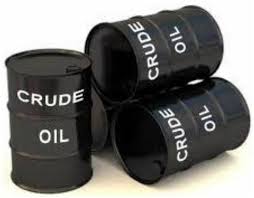 Crude oil prices tumbled again on the international market Monday, eroding last week’s gains, even as OPEC called for co-operation from oil-producing nations outside the cartel in dealing with the slump.
Crude oil prices tumbled again on the international market Monday, eroding last week’s gains, even as OPEC called for co-operation from oil-producing nations outside the cartel in dealing with the slump.
Brent crude fell 6.3% to $30.15 a barrel following a 10% rise on Friday, while US oil shed 7.1% to $29.90.
The slide came as the head of OPEC called for all oil-producing nations to work together. Abdullah al-Badri said both OPEC and non-OPEC oil producers needed to tackle oversupply to help prices rise.
“It is vital the market addresses the issue of the stock overhang. As you can see from previous cycles, once this overhang starts falling then prices start to rise,” he told a conference in London.
Despite the ongoing refusal of Saudi Arabia, the dominant OPEC member, to cut production, al-Badri nevertheless blamed countries outside the cartel for the huge global oil glut.
“Yes, OPEC provided some of the additional supply last year, but the majority of this has come from non-OPEC countries,” he said.
OPEC accounts for almost 42% of the world’s oil production, reports the BBC.
The OPEC Secretary-General said all major producers should agree on methods to reduce stockpiles and thus help prices recover.
“The current environment is putting this future at risk. At current price levels, it is clear that not all of the necessary future investment is viable,” al-Badri said.
Prices briefly fell to less than $28 a barrel earlier this month.
HSBC has lowered its forecast for the average price of Brent crude in 2016 from $60 to $45 a barrel, while UniCredit lowered it from $52.50 to $37 a barrel.
The prospect of OPEC members cutting production remains unlikely. Indonesia’s OPEC representative said that only one member of the cartel supported calling an emergency meeting to discuss ways of boosting oil prices.
The chairman of Saudi Aramco, the state-owned oil giant, said on Monday that prices would ultimately rise to a moderate level as global demand increased.
By Olisemeka Obeche (with agency report)

